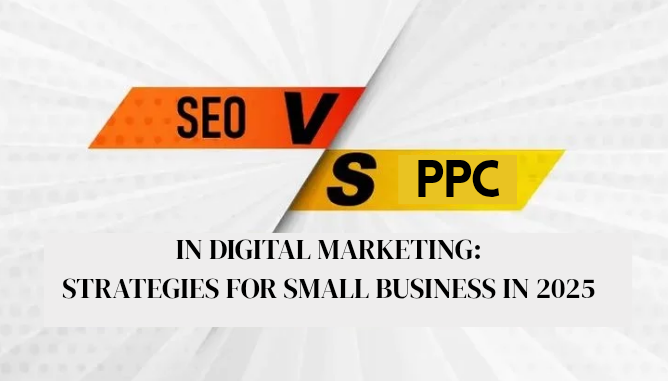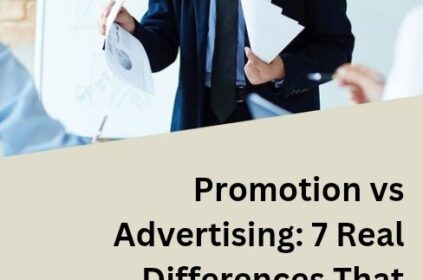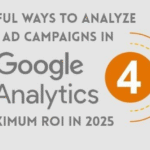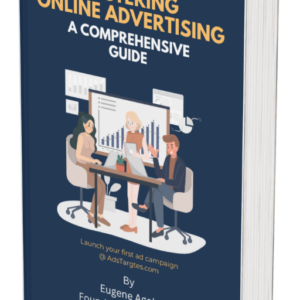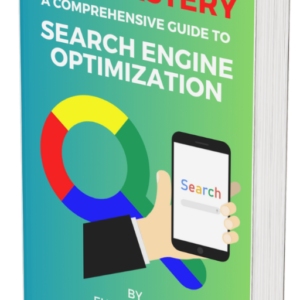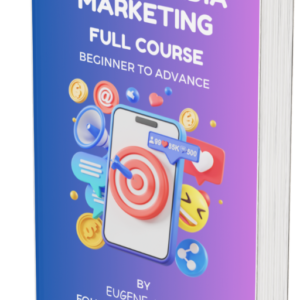Digital ad spending is projected to crash through the $1 trillion barrier this year, with more than three-quarters funnelled into online channels.
That tidal wave of capital has every founder asking the same question: what will be a worthy investment?
Some swear by organic search compounds like a retirement fund; others point to pay-per-click’s on-demand traffic.
In reality, the brands that surge ahead weave both into a single growth engine—guided by the SEO vs PPC strategies for small businesses blueprint you’re about to read.
Why Do SEO vs PPC Strategies For Small Businesses Matter?
Small companies don’t enjoy enterprise war chests, yet they still face enterprise-level competition. Search ad revenue alone is projected to jump another 7.3 percent this year, even as global markets wobble.
With bids rising and organic SERPs growing ever richer with features, choosing between channels can feel like a coin flip.
The good news is that SEO vs PPC strategies for small businesses prioritise results, not dogma, so you stop guessing and start allocating with intent.
For local brands worldwide this means calibrating budgets weekly, not quarterly. Voice search, AI snippets, and zero-click answers squeeze page-one real estate, while inflation nudges CPCs higher in nearly every vertical.
Operators who watch blended CAC like oxygen—and let SEO vs PPC strategies for small businesses guide reallocation—will sidestep that pressure and seize mind-share.
Why the Debate Won’t Die—And Why That’s Healthy
The friction is logical: SEO delivers compounding authority but demands patience, while PPC can flood a funnel by lunch yet bleeds budget the moment you pause.
When you’re weighing which is better for your business, remember that searchers assign different trust levels to ads and organic listings. Blended visibility earns the click and the credibility.
Deploying balanced SEO vs PPC strategies for small businesses preserves cash flow now and builds an asset that prints traffic later. That mindset cushions shocks; if an update tanks a top post, paid search backfills demand until rankings recover.
Likewise, when auction prices spike, evergreen content keeps leads flowing without extra spend. Clear graphs show organic-paid handshakes, not cliffs. That realism keeps the SEO vs PPC debate alive for founders who trust data over doctrine.
Long-Term Endurance vs Instant Hits for Better ROI
Fresh data shows median SEO campaigns return 702 percent ROI for B2B SaaS within seven months, while well-tuned paid search averages 200–300 percent in the first quarter.
The translation is that SEO compounds but PPC accelerates. For cash-conscious owners wondering if SEO is easier than PPC, realise that ad platforms handle targeting for you; organic wins demand meticulous content and link equity.
Still, modern tools shrink the learning curve, letting SEO vs PPC strategies for small businesses feel less like a slog and more like a calculated sprint-plus-marathon.
Factor in customer lifetime and the gap narrows: organic search users spend more over time, while PPC buyers churn faster if experiences disappoint.
Smart finance teams treat both channels as complementary cash-flow levers within the broader SEO vs PPC strategies for small businesses dashboard daily.
Why Synergy Is Important
Organic pages with high click-through rates lower future CPCs when you retarget that same intent profile—Google rewards relevance everywhere. Meanwhile, PPC keyword data uncovers long-tail gems you can rank for organically.
These feedback loops sit at the heart of elite SEO vs PPC strategies for small businesses, turning two separate channels into a single profit flywheel. Lessons learned in one channel upgrade the other automatically.
A winning headline from split-tested ad copy becomes the H1 of a blog post; a soaring organic click-through informs responsive search ads. Shared tracking pixels stitch journeys into one attribution stream, letting you scale budgets where blended CAC shines.
Over quarters, reciprocity breeds efficiency—traffic grows, costs shrink, and share expands without ballooning headcount. That synergy made tangible through SEO vs PPC strategies for small businesses.
7 SEO vs PPC Strategies For Small Businesses
#1. Establish an Evergreen SEO Foundation
Start with a comprehensive site audit, patch technical errors (core web vitals, crawl depth, duplicate tags), and outline three to five cornerstone guides that answer bottom-funnel questions.
Map each article to a commercial keyword, then tighten internal links so PageRank flows logically. Next, secure trusted backlinks from industry directories and guest posts.
Monitoring Search Console impressions weekly shows early traction, letting you expand supporting clusters.
By anchoring your growth plan in SEO vs PPC strategies for small businesses, you create a reliable inbound channel that steadily reduces reliance on paid clicks without compromising lead volume or long-term revenue growth overall.
#2. Use PPC to Validate Buyer Keywords
Before committing months of writing time, allocate a small PPC test budget—often $300–$500 is enough—to probe buyer intent.
Launch tightly themed ad groups around your provisional keyword list, setting manual bids to control spend. Within days you’ll know which phrases produce add-to-cart events and which simply drain clicks.
Export that conversion data into your content planner and prioritise pages accordingly. This evidence-based loop ensures SEO vs PPC strategies for small businesses direct effort toward proven revenue levers rather than vanity topics.
It also reveals negative keywords that future organic pieces should avoid to keep bounce rates low and engagement high.
#3. Retarget Organic Visitors with Budget-Friendly Display
Visitors who arrive organically are already problem-aware, making them the cheapest audience to re-engage.
Build remarketing lists in Google Ads or Meta that trigger after product view, cart creation, or a content download. Design lightweight display creatives that reinforce the benefit and feature a limited-time incentive.
Because these users recognise your brand, click-through rates climb while CPMs remain modest, protecting margin.
Embedding this retargeting motion within SEO vs PPC strategies for small businesses turns casual researchers into loyal buyers and recaptures revenue that might otherwise leak to competitors offering first-touch discounts or unexpected cart abandonment surprises during busy sales periods.
#4. Schedule Seasonal PPC Bursts for Quick Wins
Many retail or event-driven businesses experience traffic spikes tied to holidays, conferences, or regional celebrations.
Organic content often needs weeks to index, so pair each campaign calendar with a complementary PPC burst. Target high-intent keywords plus branded queries to intercept last-minute shoppers while your seasonal guide climbs the SERP.
Once the promotion ends, pause the ads and let the optimized page continue earning organic conversions.
This disciplined timing keeps SEO vs PPC strategies for small businesses flexible without escalating spend, giving founders predictable surges and maintaining baseline traffic the rest of the year—even in slower post-holiday budget-conscious quarters.
#5. Optimize Landing Pages for Quality Score and Schema
Landing pages act as the handshake between ads and conversions, so optimise them for both Quality Score and rich-snippet eligibility.
Start by matching headline language precisely to ad copy and inserting the primary keyword within the first 100 characters.
Compress images, enable lazy load, and ensure mobile CLS scores under 0.1 to satisfy Google’s performance metrics.
Next, implement schema for product, review, or FAQ blocks so organic listings display trust-building stars. This dual optimisation lowers CPCs by improving relevance and heightens organic click-through, amplifying SEO vs PPC strategies for small businesses impact from a single page rather than duplicating effort.
#6. Automate Cross-Channel Attribution
Channel disputes crumble when every conversion is traced accurately from ad click or search impression to closed invoice.
Deploy privacy-compliant server-side tracking that pipes cost data, UTM parameters, and CRM revenue into a unified warehouse.
Connect Google Ads, Meta, and Search Console APIs, then deduplicate touchpoints before assigning credit using position-based or data-driven models.
Dashboards update hourly, showing which campaign fuels the pipeline and which burns cash. With this clarity, SEO vs PPC strategies for small businesses evolve from guesswork to algorithmic budget allocation, freeing teams to brainstorm creative instead of arguing attribution during weekly stand-ups and executive report review sessions.
#7. Review and Rebalance Budgets Every 30 Days
Set a recurring calendar invite to audit marketing performance on the last business day of every month. Pull blended ROAS, cost per acquisition, and share-of-voice metrics across organic and paid channels.
Compare against previous cycles, flag anomalies, and reassign dollars toward outperforming campaigns. Pause stale ad groups, refresh creative, and update content briefs with newfound keyword insights.
This disciplined cadence ensures SEO vs PPC strategies for small businesses remain responsive to algorithm tweaks, seasonal demand, and competitive bid wars.
Over a year, twelve small pivots compound into significant savings and revenue lifts without surprise budget overruns or costly strategic detours.
SEO vs PPC: Choosing Where To Invest
Picture a bootstrapped founder eyeing Facebook ads versus doubling blog output. If your offer solves an immediate pain and margins allow front-loaded spend, a tightly targeted PPC burst may recover cost inside a week—especially compared to Facebook’s interest targeting, where searchers show less purchase intent.
Conversely, businesses selling high-consideration services often find SEO’s authority signals convert better than feed-scroll distractions.
Ultimately, the smartest SEO vs PPC strategies for small businesses weigh lifecycle stage, cash reserve, and competitive CPCs.
When bids in your niche jump above acceptable CAC, lean harder on organic. When time-to-market trumps everything, unleash ads and accept a break-even short-run to gather customer insight fast.
Budget Benchmarks You Can Steal
#1. Allocate 6–10 percent of annual revenue to marketing; small firms looking for traction often skew toward the higher end.
#2. Start with a 60/40 split favouring PPC for brand-new sites, then invert those ratios once organic traffic reliably covers 40 percent of monthly lead flow.
#3. Re-invest 20 percent of waste you eliminate each month into fresh testing—a hallmark of resilient SEO vs PPC strategies for small businesses.
Helpful Tips To Tilt The Scale
#1. Google Search outperforms Facebook ads for intent-driven queries because users are already hunting solutions, not browsing passively.
#2. Meta shines for behavioural and demographic discovery, yet SEO dominates trust once comparisons begin.
#3. LinkedIn Ads carry premium CPCs but funnel high-value B2B leads; layering organic blog authority builds credibility before those clicks land.
Tuning platform choice to buyer psychology prevents overspend and fuels more balanced SEO vs PPC strategies for small businesses.
Measuring What Matters
Avoid “vanity traffic” by tying all channel reports back to one metric: blended customer acquisition cost. Server-side tools rebuild the identity graph despite cookie loss, ensuring true ROAS.
The brands winning 2025 are those turning raw numbers into narrative, then letting that story guide incremental shifts.
No surprise the top performers I audit funnel every insight back into, you guessed it, data-driven SEO vs PPC strategies for small businesses.
Steps You Can Take in 30-Days
#1. Audit existing content and ad spend.
#2. Deploy basic server-side tracking plus conversion imports.
#3. Launch $500 in ad tests around suspected money keywords.
#4. Draft cornerstone articles targeting validated terms.
#5. Retarget visitors for pennies on TikTok or Display.
#6. Review blended CAC and pivot budget accordingly.
Run that loop four times a year and you’ll own a living framework—exactly what top-ranking SEO vs PPC strategies for small businesses case studies share in common.
Final Thoughts
The debate over “SEO or ads” misses the larger opportunity: orchestration. Small companies that choreograph both channels earn brand authority, predictable lead flow, and margin their larger rivals envy.
Equip your stack with the seven moves above, revisit allocations monthly, and let SEO vs PPC strategies for small businesses become less of a dilemma and more of a disciplined engine that compounds quietly, month after month.
Move now—before another algorithm update or CPC hike raises the stakes—and turn every marketing dollar into a growth story investors will love.

